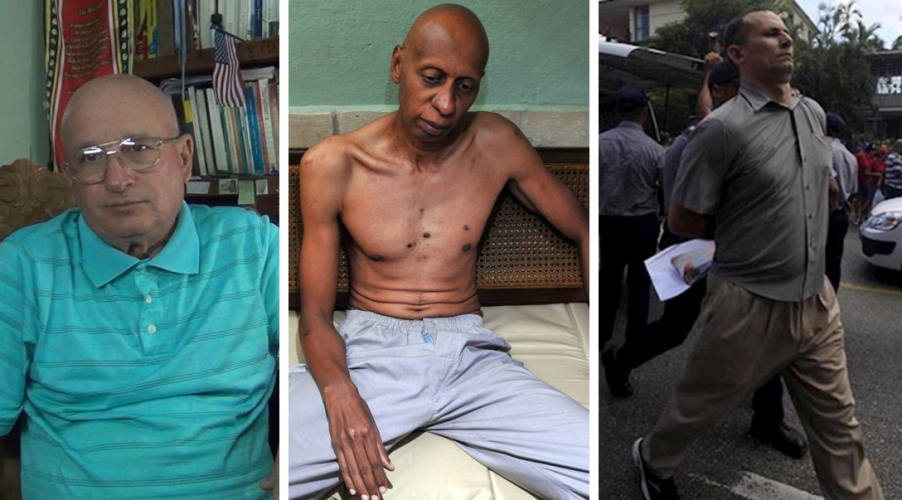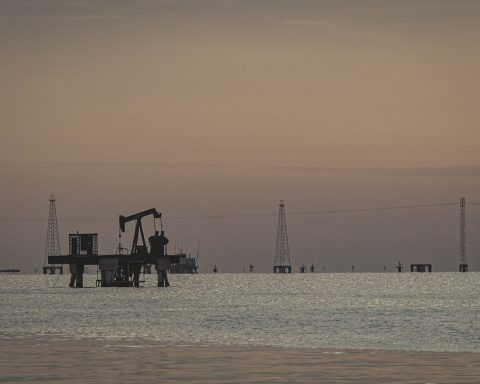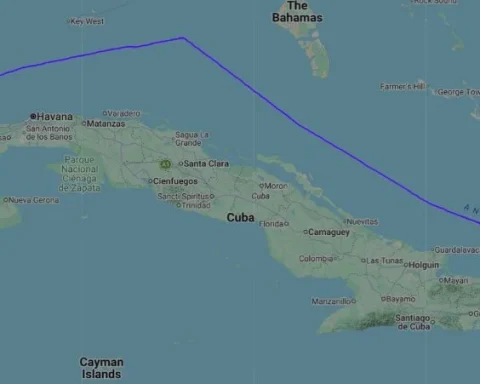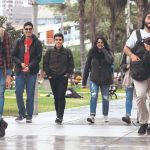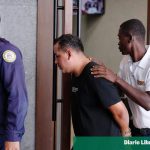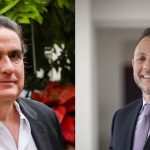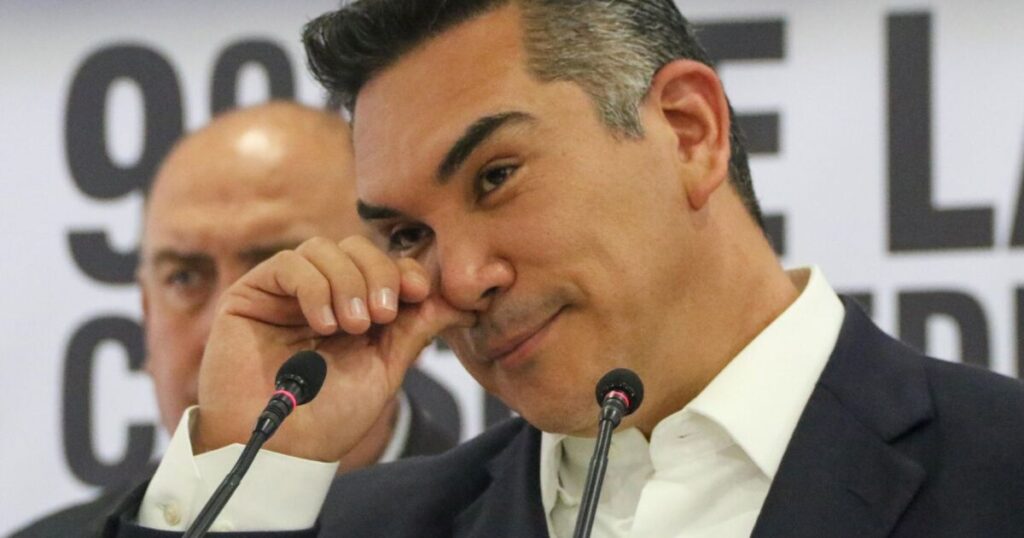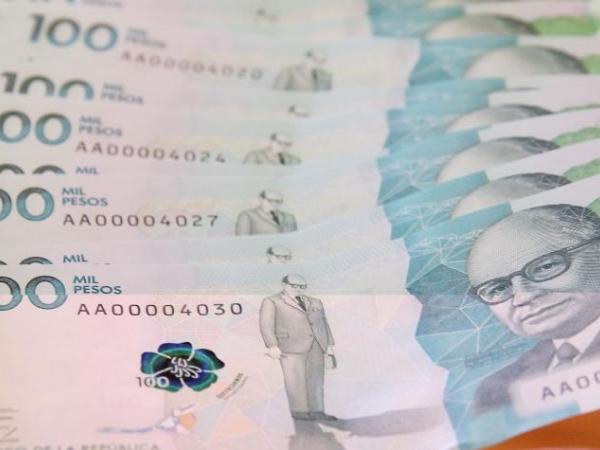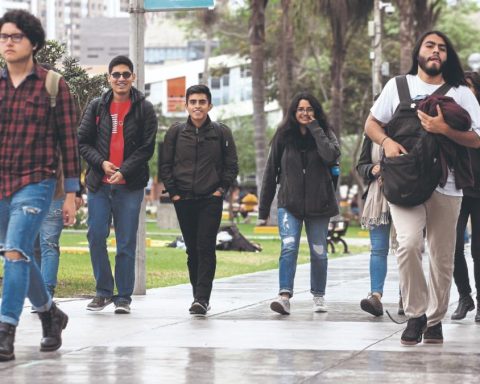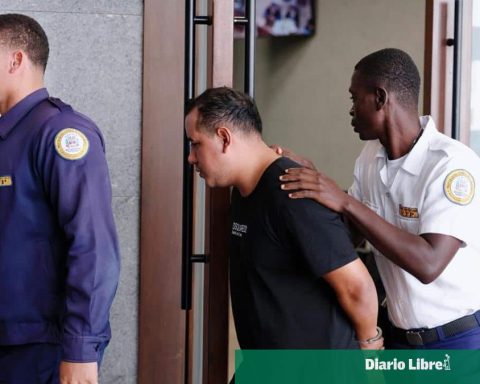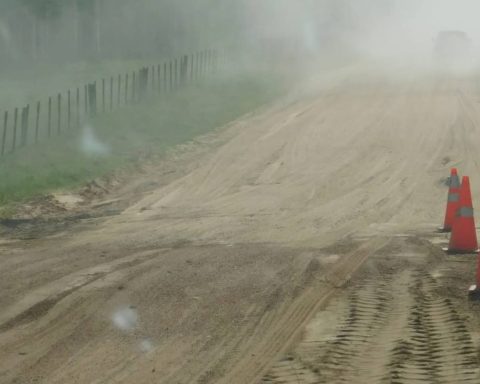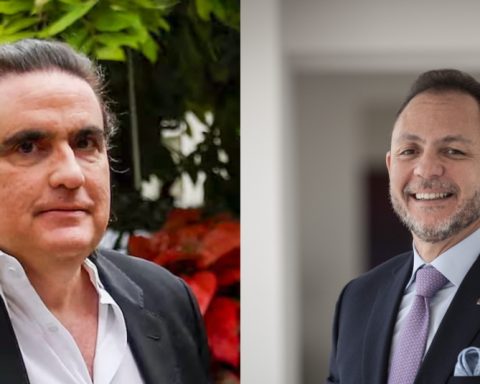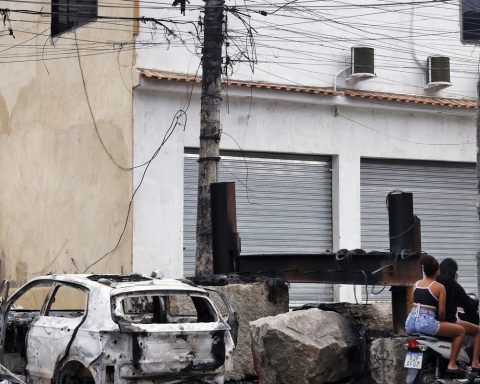HARRISONBURG, United States. — The Cuban independent journalist Camila Acosta and her partner have been besieged these days in her home. In the last three years, the reporter has suffered police harassment on the street, arbitrary arrests, citations, house searches, theft of work equipment, personal property, money and even books. She has also suffered 10 months of house confinement.
But Camila is not an exceptional case, because the repression she has suffered is the same one that other independent journalists and peaceful opponents suffered for years, and it is the same one that her colleagues Manuel de la Cruz, Luz Escobar and Boris González Arenas are suffering these days. . In Guantánamo, Niober García Fournier has been permanently monitored in front of his house, with the distinction that he is allowed to go out into the street, although he is followed by two State Security officers.
Journalist Lázaro Valle Yuri Roca is in prison just for exercising his right to write what he thinks. Peaceful opponents Manuel Cuesta Morúa, Berta Soler and Guillermo Fariñas have been arbitrarily detained by State Security and threatened so that they do not go out on the streets, at least for these days. Félix Navarro and José Daniel Ferrer are in prison.
Not even one of the most decent and intelligent people I have ever met is spared from this repression, I am referring to Dagoberto Valdés, a Catholic layman of recognized national and international prestige who, for more than thirty years, has maintained a civic attitude and exercise commendable intellectual within a people until recently blind and deaf to the reflections and acts of these and many other advanced, who exposed themselves and expose themselves to everything in defense of democracy and human rights.
I call them that, “advanced”, because long before the latent state of national rebellion that can be seen in Cuba today existed, they dared to challenge the enormous force of the dictatorship without having more support than that of their consciences. Many of them have received from the dictatorship, as punishment for their “boldness”, the denial of the right to exercise their profession or even to work, no matter how simple, together with absolute ostracism or jail. Some as Oswaldo Payá and Harold CeperoThey paid for their daring with death. Another significant number had to opt for exile.
Many of these people have received as a response to their civic attitude a sanction that perhaps hurts more than those that the dictatorship can impose on them. I am referring to the ridicule and disrepute that comes from some in exile. Right here, on the pages of CubaNet, I have read with deep pain how someone who hides his identity behind the anodyne epithet of “Zorro” has accused them of being visa seekers. I think it takes a very light soul —perhaps it’s a cyberclair— to criticize those who stand up to the dictatorship on their land, not from the comfort of exile. The sad thing is that many of those who carry out these baseness, when they were in Cuba, were not able to even throw a trumpet at a mural of a CDR.
If there were protests on July 11, it was due to the confluence of many factors, including the formation of an alternative national consciousness to the one proclaimed by the dictatorship. This was achieved, in large part, by the selfless and silent work of those advanced.
Today it is heroic to go out through the Cuban streets with an anti-government poster while making a “direct” that immediately circulates on social networks. But the moment demands much more than that. The advanced ones did much more when acting against the dictatorship was considered insane.
It takes a lot of work to create an alternative consciousness in a society as closed, dependent and manipulated by the State as the Cuban one. Today it can be affirmed that this conscience does not stop growing and becoming stronger, although it is not yet expressed with total effectiveness.
Only the empowered communists in Cuba and genízaros in the style of Manú Pineda, Ana Hurtado or Atilio Borón, just to name a few of the dumbest, still have the shamelessness to affirm that Cuba is a state of law and, to add insult to injury, democratic. , as stated in article 1 of the Constitutionthe clearest example of how a system supposedly superior to capitalism can involute towards an undeclared, but real, socialist constitutional monarchy.
In Cuba there is no rule of law since March 10, 1952. Since then, several generations of Cubans have lived in a true state of siege, with the exception that during the Batista dictatorship there was a free press, independent unions, university autonomy, various political parties, sale and possession of weapons and explosives, acquittals and even an amnesty that favored the terrorists who went to assassinate other Cubans at dawn on July 26, 1953. And although it pains me to admit it, we had a more rebellious and dignified people in the face of injustice.
That the class that misgoverns Cuba, a country with so many economic problems, allocates considerable human, material and financial resources to guard the homes of independent journalists and peaceful opponents, or to intimidate the people and arrest any citizen who dares to express publicly his opinion about the management of his rulers and the political system, says a lot about the mafia character of the dictatorship.
The greatest despot himself recognized in the first decade of this century before an American journalist that “the Cuban system did not work even for ourselves.” The question that many asked themselves at the time was this: “Then why do you keep it?” It was never a rhetorical question, much less after nearly two decades had passed since the debacle in Eastern Europe.
Far from making those changes, Fidel Castro and his brother opted for a continuity that has done nothing but continue sinking the country. The reason for this attitude has always been obvious: they do not defend their misunderstood and called socialism, but only their permanence in power.
For that reason in Cuba, from 1959 to today, all dissent has been considered an attack against the security of the State. On July 11, the international visibility of the tragedy of the Cuban people increased, the same one that for decades the advanced have denounced and faced.
OPINION ARTICLE
The opinions expressed in this article are the sole responsibility of the issuer and do not necessarily represent the opinion of CubaNet.
Receive information from CubaNet on your cell phone through WhatsApp. Send us a message with the word “CUBA” on the phone +1 (786) 316-2072, You can also subscribe to our electronic newsletter by giving click here.
